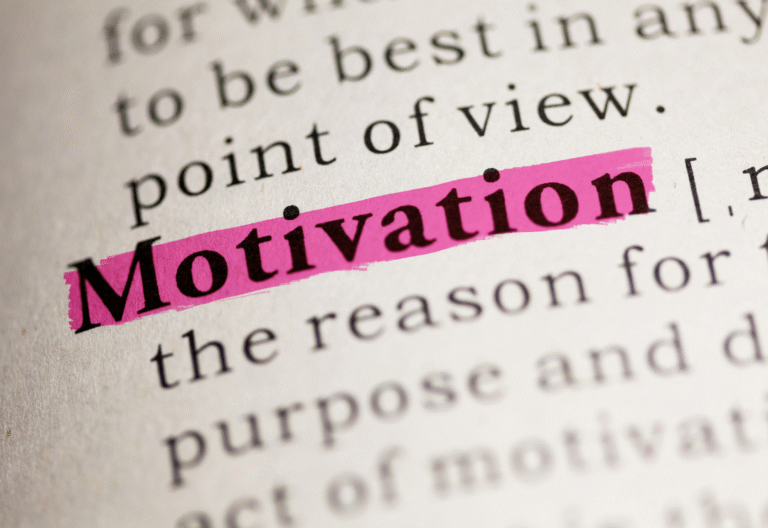Nothing kills momentum than losing that drive, the motivation.
You were on a roll. You were making progress, feeling energized, and genuinely excited about the direction you were heading.
And then, WHAM.
You get some tough feedback. A project you poured your heart into gets rejected. You get passed over for a promotion you were sure you’d get. Or maybe it’s not one big thing, but a slow, creeping burnout that leaves you feeling completely drained.
Suddenly, all that forward momentum comes to a screeching halt.
The spark is gone, replaced by a heavy feeling of disappointment, frustration, or just plain exhaustion. Trying to get back to work feels like wading through mud. This is the motivation dip, and it’s one of the most challenging parts of any journey. A setback doesn’t just derail your plans; it attacks your confidence and makes you question everything.
But here’s the good news: you don’t have to stay stuck. Getting your drive back isn’t about pretending the setback didn’t happen. It’s about having a game plan for when it does. Here are five steps to help you find your footing and get your mojo back after hitting a wall.

I am only human
Say it with me, “I am only human”.
Breathe and say it again…
When we get knocked down, our first instinct is to jump right back up and shout, “I’m fine!” “I’m FINE”
That’s a terrible idea.
We, as a society, believe strength comes from ignoring the disappointment and just powering through (willpower), but that’s not helpful in the long-term.
Ignoring the feeling doesn’t make it go away; it just lets it fester. You can’t logic your way out of feeling disappointed. You can, and I have, try to rationalize your way around disappointment all you want, but when it’s an emotional challenge you have to give yourself permission to feel and heal, emotionally.
The first step to moving forward is to give yourself permission to feel the sting for a moment. Be frustrated. Be sad. Be annoyed.
Now, when you get to a disappointing event in life, give yourself time to wallow in your frustration, sadness, or whatever you might be feeling. Take a breathing break, let your emotional gather itself, and move forward.
Here’s what you need to do:
Give yourself a specific, limited amount of time to be bummed out.
It could be one evening, a lunch break, or even just 15 minutes. Vent to a friend, write it all down in a journal, or just sit with the feeling. When the timer goes off, you acknowledge the feeling and agree to take one small step forward. This honors your emotions without letting you get stuck in them.

Take control of your mind
Our brain is extremely complex, and we only have awareness of what actually happens in our conscious mind, but majority of the work gets done in the sub-conscious mind. It creates stories to make sense of the world and our experience in it, although this is it’s way of making sense, it can become harmful too.
Right after a setback, your brain wants to tell you a story, and it’s usually not a very nice one. It’s a story about failure, inadequacy, and why you’re not good enough. This story feels true, but it’s not productive. Your job is to change the narrative.
You’re not a failure.
You can start taking control of your mind, and act as if you were a scientist – observing, taking notes, learning, and growing from your experience. You want to create and ask yourself questions to investigate what went outside of your plan, and collect data for a better future experience.
Grab a piece of paper and answer these questions like a detective looking for clues:
What specifically happened? (Just the facts, no emotional drama).
What part of this was within my control? What part wasn’t?
What is one thing I learned from this experience?
What is one thing I would do differently next time?
This shifts you from a place of emotional reaction to a place of objective analysis. The setback becomes a lesson, not a loss.
Again, this can be done with minimal bias if you stated, “I’m only human” and gave yourself permission to feel your emotions, and heal. Sadly, because our society rewards “brushing it off” and not actual emotional healing, I see too many clients having issues with their self-narrative, which is riddled with self-blame and poor self-representation. This happens because our emotions shape the story we tell ourselves, and we didn’t give ourself time and space to emotionally heal.

Get up, get right back up and win!
After a big setback, your confidence is probably shaken. Trying to jump right back into another huge, challenging task is a recipe for disaster. Your brain needs proof that you can still succeed at something.
Depending on the first two steps, you might need time to step back and reflect. This is where a career counselor is extremely helpful. Because of their counseling background, they can help navigate the complexities of emotional healing and mental de-tanglement.
The fastest way to rebuild your sense of competence is to score a quick, easy win—even if it’s completely unrelated to your original goal.
Pick a 10-minute task you can crush. This is about rebuilding momentum. Don’t think big; think tiny.
Clean off your desk.
Create a to-do list.
Make a healthy lunch.
Go for a 10-minute walk outside.
The task itself doesn’t matter. The feeling of accomplishment does. That small hit of “I did a thing!” is the spark you need to start rebuilding your fire. These are crucial for keeping our energy up while we readjust. The act of getting up when we fall is a win. It deserves to be celebrated.
Reconnect with your WHY

Returning to the seven strategies of boosting your motivation, is a reset because a setback can feel all-consuming, making you forget why you started on this path in the first place. It’s easy to lose sight of the big picture when you’re staring at a roadblock.
This is the perfect time to zoom out and reconnect with your larger purpose. Ideally, with or without your setback, it’s good practice to return to your “WHY” at least every six months to ensure you’re aligned with your larger purpose, and if it’s changed/modified you can continue refining your direction.
Ask yourself:
Why is this career path important to you?
Who are you trying to help?
What kind of impact do you want to make?
Reminding yourself of your “why” puts the setback in perspective. It’s just a pothole on a very long road, not a dead end.
Reread your purpose statement. If you created a purpose statement from our first blog post, go read it now. If you didn’t, take five minutes to write one.
Think about the version of you that exists on the other side of this challenge.
What is that person like?
What are they proud of?
Let that vision pull you forward. Having clarity in your vision can make you see other potholes, barriers, challenges that you might need to overcome. Focus on clarity and priority because at the end of the day, your motivation is there to help you create habits that’ll lead you to your desired destination.
Don't go at it alone . . .
When we’re feeling down about a setback, it’s tempting to retreat into a cave and isolate ourselves. We feel embarrassed or don’t want to burden others.
But this is when we need connection the most.
Talking about what happened with a trusted friend, mentor, colleague, or coach does two things:
It gets you out of your own head and stops the negative thought spiral.
It gives you an outside perspective. Often, other people can see the lessons and opportunities in our setbacks far more clearly than we can.
A coach is your comeback partner
Navigating a major career setback is tough. It’s hard to stay objective, find the lessons, and rebuild your confidence all on your own. This is where a coach can be your most valuable ally. A coach isn’t just there to cheer you on; they’re your strategic partner in turning a setback into a setup for your next success.
Together, we can:
Safely unpack what happened without judgment.
Pinpoint the valuable data and lessons hidden in the experience.
Create a concrete, step-by-step plan to rebuild your momentum.
Hold you accountable as you take those first crucial steps back into the game.
You don’t have to navigate the dips alone.
If you’re feeling stuck after a setback and are ready to turn it into a comeback, let’s talk. Book a free, no-strings-attached call today.
Let’s build your resilience and get you back on track, stronger than before.

